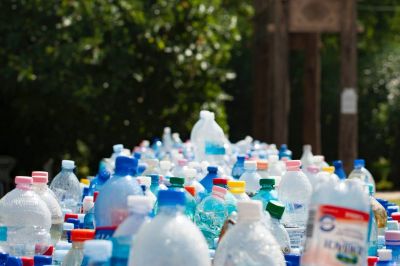An Unlikely Tool for Environmental Redemption in a Plastic World

I am in Southern India and there is plastic everywhere.
Last spring, my travel across Southern India took me to beautiful landscapes and interesting places.
But all those places had one thing in common. They were littered with plastic. From national parks to freeways, plastic bags of all colors were seen at every place imaginable.
A country surely cannot end up in such a state unless it is careless about waste disposal.
Not surprisingly, India ranked 12th in mismanaging plastic waste. Her big neighbour, China, ranked first.
India also made it to the list of top 20 countries that dump plastic waste into the oceans.
Even worse, a biennial report by Yale and Columbia universities rank India at 177 (out of 180 countries) in the environmental performance index.
The streets, the beaches, and the countryside are all a testament to these rankings, and I could not disagree much with it.
Plastic use is rampant in India. More than a billion people live in India, and catering to such a large population without plastic is next to impossible, considering the plastic-dependent industries.
Shockingly, in some cases, plastic may actually seem to be more beneficial to the environment than its alternatives—if it is disposed of properly.
For example, pottery tea cups, when produced on a large scale, result in loss of the crucial top layer of fertile soil, thus proving to be less environment-friendly than the plastic cups (when disposed properly). That's not to mention all the water and detergent needed to wash them after every use.
And imagine selling milk to 1.3 billion people in glass bottles or waxed cardboard cartons!
The same can be said of any packaging material or household items that require more destruction of trees and other critical resources.
This is not to say that plastics are the better option. The need of the hour is proper waste disposal mechanisms, with strict rules that not only prohibit people from littering but give them a strong incentive not to.
But policing a billion people is not easy. The security force is outnumbered.
The root of the issue is poor ethics and moral standards. It makes people litter and use excessive amounts of plastic when they could use less and dispose of it properly.
A change is unlikely, unless people change. Changes at that individual level don't happen that easy. My recommendation? The gospel of Jesus Christ.
Transformation through the gospel, leading to awareness of the principles of biblical stewardship of creation, can redeem this country's once beautiful and pristine environment.
The biblical way of life, in its traditional sense, demands that we humans be good stewards of the environment God has entrusted to us.
Good stewardship in today's world may mean a lot more than this, but at the very least it translates into not littering and not abusing plastic (or anything else) in excess or in ways that pollute the environment.
Environmental projects initiated by governments and non-profits seldom address the moral condition of the human heart or the influence of worldview on lifestyle patterns.
The Bible, undoubtedly, is a massive weapon in reclaiming the pristine environment in India and in other places, like China.



























